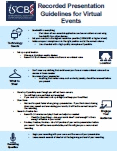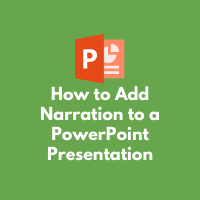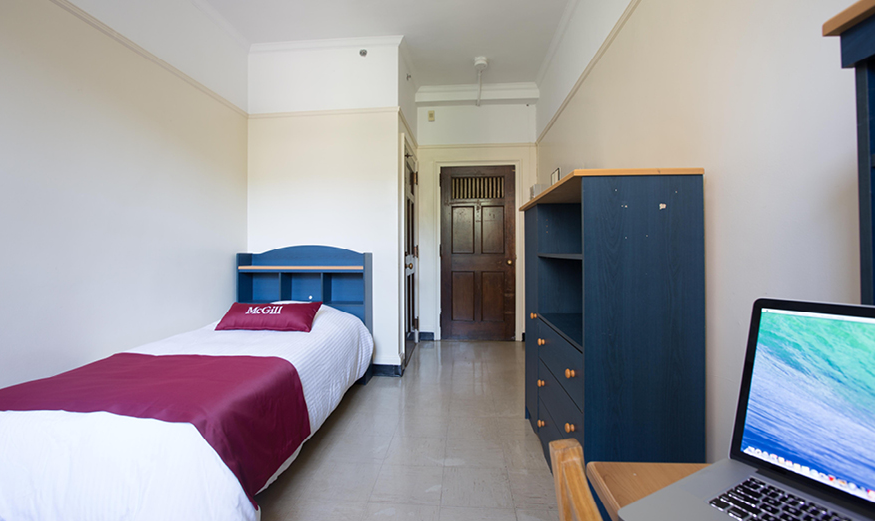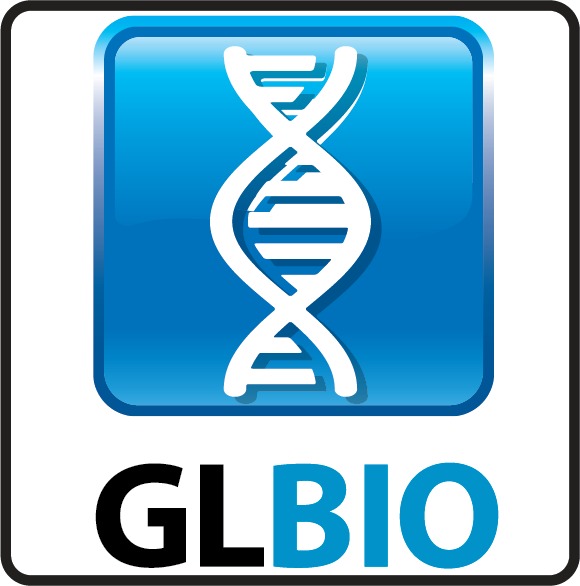MolEvolvR BTS:
When and how to build a web-app and software package?
May 15, 2023
13:00 - 17:00
We recently developed a web application, MolEvolvR, to characterize proteins using molecular evolution and phylogeny. This session will serve as a behind-the-scenes (BTS) sneak peek into what MolEvolvR does, how it does it, and its origin story. The hands-on training component will provide the basic principles of why and how to build a dashboard/web-app for your biological problem of interest with R/Shiny, and when and how you would set up your back-end as an R package.
Workshop outline | Rationale with hands-on component
- When are you ready to set up a dashboard? When would you build a simple web-application instead?
- A little bit of bioinformatics: A quick preview of our MolEvolvR web-app. How it came to be, from special cases to a generalized version? How to characterize proteins of interest by identifying the underlying molecular building blocks? Where do these features come from and what does it mean, i.e., how to interpret the results using the lens of evolution?
- How do you pick your feature list for your web-app? Some lessons and reflections.
- Project management 101: how to set up version-controlled projects and repositories for collaborative computational biology projects (with other dry/wet-lab colleagues)?
- Dashboard 101: How to develop a dashboard for your data/visualizations using Rmarkdown/Quarto?
- Web-app 101: How to develop and host an interactive R/Shiny web application?
- R-package 101: When, why, and how would you create your first R-package?
- Quick tour on how to set up the backend that supports a workflow, data tables and visualizations, for a multi-functional web-app such as MolEvolvR.
Organizers:
- Janani Ravi, University of Colorado Anschutz Medical Campus
- Jacob D Krol, University of Colorado Anschutz Medical Campus
- Faisal S Alquaddoomi, University of Colorado Anschutz Medical Campus
URL: https://github.com/JRaviLab/2023-glbio
Max capacity: 25
Intended audience: Any bioinformatician/computational biologist interested in developing open source software (e.g., R-package) and web applications (e.g., using R/Shiny) for their particular use cases, or for developing more broadly applicable open resources. Familiarity with R/tidyverse would help but is not required.
- top -
ITCR Training Network
Using reproducibility techniques and version control to improve daily bioinformatics research practices and publish scientific websites
May 15, 2023
8:00 - 12:00
This workshop aims to equip individuals with an understanding of how to apply reproducibility
skills and version control with GitHub and code review in their daily work. To provide a hands-on
activity to allow attendees to practice these skills and concepts and to provide the attendees
with a useful product, attendees will use our tools, open source tools for training resources
OTTR (https://www.ottrproject.org/), to create or update a free scientific website hosted on
GitHub during the workshop with automated checks and rendering. OTTR uses R packages,
GitHub templates and GitHub actions and is a suite of publishing tools that can automate
portions of the creation process for scientific websites and courses. The workshop is aimed for
individuals who are undergraduates, graduate students, medical students, or postdoctoral
fellows.
The workshop will cover fundamental concepts about reproducibility practices, code review, and
the basics of version control with Git and GitHub. These basics will include pushing and pulling
data and code to GitHub, creating development branches, submission of pull requests, code
review and collaborative coding, hosting free websites with GitHub pages, and automating
processes with GitHub actions. Reproducibility best practices are critical in performing rigorous
and transparent research. This workshop will not only help enable trainees with skills to
incorporate more reproducible practices into their daily work by performing a hands-on activity,
but learners will also leave with a new website with automations to check various aspects of the
website, such as broken urls and misspellings based on a custom dictionary. Now more than
ever, personal scientific websites are extremely helpful for demonstrating an individual's
contributions to the field (for career advancement). In addition, if a learner already has a
personal website, websites to advertise software tools and provide documentation are also vital
for increasing tool usage.
Organizer:
- Candace Savonen, Fred Hutchinson Cancer Center
- Carrie Wright, Fred Hutchinson Cancer Center
URL: https://www.itcrtraining.org/events#h.q5ddehyh7ec
Scholarship Application to attend: https://forms.gle/gh214LJsg2dFaMGA8
Max capacity: 30
Intended audience: Trainees (undergraduates, graduate students, medical students, or postdoctoral fellows) that work on informatics related code.
- top -
Best practice of bioinformatics engineering:
how to implement a scalable production workflow,
with examples in population level cohort study
May 15, 2023
8:00 - 17:00
A common challenge in the field of bioinformatics is the engineering of an informatics solution from a scientific proof-of-concept. Many people build their own pipelines, which often are consist of a large variety of scripts and software of different origin and quality, including many proof-of-concept scripts developed by researchers with the intention on methodology rather than production code. The complexity of these pipelines, together with a lack of clear standards of software engineering in this research field, make it difficult for institutions and companies to properly deploy, test, update and maintain software solutions – which, nevertheless, are required to be run in production level to serve as the primary competitive advantage in the applications or field of innovation.
In this workshop, we start with an in-depth discussion of “what makes good bioinformatics workflow” and dive into different perspectives of engineering best practices to turn a scientific proof-of-concept into a more repeatable, reproducible, scalable, and interactive/exploratory software solution. We will provide attendees access to Illumina’s cloud software platform tools to facilitate learning processes through hands on exercises, but the concepts are the same regardless of where they get implemented. Attendees may take these concepts and apply in their own infrastructure, on the cloud or on premise to implement better bioinformatics software solutions.
We discuss on requirements, considerations, thoughts, and tools to implement a bioinformatics pipeline to:
- Make it as easy as possible to re-run
- Make it repeatable
- Make it as easy as possible to adjust configurations
- Support better testing and with isolated executive environment
- Distribute jobs and achieve higher scalability
- Be able to track where things are
- Account for software maintenance, data management and project management
- Enable Data and analysis exploration, in real time and interactive
We then extend the discussion into how best to organize cohort level population study in genomics, and how to aggregate single sample/subject focused pipelines’ results into a data
warehouse for interactive exploration. Examples we will show include a cohort analysis tool on Illumina’s platform, as well as a crowdsourcing study on temporal transcriptomic coronavirus host infection data - from hypothesis generation to multi-omics validation through an integrative data portal development.
Learning Objectives for the Workshop For the attendees:
- To get exposed to considerations and requirements to operationalize bioinformatics workflow
- To get exposed to software tools and features that could help make bioinformatics solutions more repeatable, reproducible, scalable, and interactive
- To get some hands-on experience with the exercises powered by a cloud platform
- Cross-pollinating ideas for cohort level population genomics study
Organizers:
- Illumina team led by Ming Wu, Manager, ACE Data Sciences, Illumina
- Ken Eng, Project lead
- Rachel Sherman
- Sidki Bouslama
- James Flynn
- Dan Crawford
URL to see tools that will be taught during the workshop: https://developer.illumina.com/illumina-connected-analytics#webinars
Max capacity: 40
Intended audience: Beginner or intermediate level. This tutorial is aimed at bioinformaticians, computational biologists or molecular biologists – anyone who has the need to implement and operationalize a solution based on a scientific prototype in the field of genomics and bioinformatics.
- top -
Bioinformatics Education Summit
15–17 May 2023
Wellcome Genome Campus, UK and Virtual
The Bioinformatics education summit provides a platform for discussion, development and dissemination of advances, guidance and best practice for training and education in bioinformatics as part of a global network. Held as a working meeting (rather than a conference or workshop), its goal is to promote the advancement of training and education through the development of resources, best practices and guidance for delivery, all of which are made openly available to the global community through its partner networks.
This year’s meeting will offer both in-person and virtual attendance and will focus on three main themes:
- Furthering the use and adoption of the ISCB competency framework through extending the framework itself to include health data science roles and developing further practical support for people to use it in developing training.
- Exploring how we can make our training and teaching more green, including improving compute practices for environmental sustainability
- Developing and sharing best practice for building and supporting communities of best practice in training.
There will also be opportunity to further review challenges and opportunities for developing and delivering training to participants in low resource settings, as well as participating in initiatives focused on ensuring that training materials are FAIR, train-the-trainer activities, and much more.
You can find full details on the event website:https://coursesandconferences.wellcomeconnectingscience.org/event/bioinformatics-education-summit-20230515/
If you have questions or need additional information, please email This email address is being protected from spambots. You need JavaScript enabled to view it.
- top -
Representational Learning in Genome Biology and Medicine
May 17, 2023
Leacock 232
Biomedical and translational science researchers are increasingly accumulating genomics data that complement clinical and imaging data used in clinical records. As a popular subfield of machine learning, representational learning (RL) may help drug developers understand the complex relationships among human biology, genetic factors, and therapeutic agents by learning a representation of the data. RL aims to capture the underlying structure and variations in the data to make accurate predictions or inferences about new gene-drug-disease data. It can cover a broad spectrum of unsupervised, deep, and transfer learning on vast biological data sets beyond the medical image.
This session aims to bring bioinformaticians, data scientists, and biomedical domain experts together in the GLBIO community to rethink how to leverage AI/ML power for a better disease biology understanding, which aids precision medicine and tailored therapeutic development. This session will draw a broad spectrum of trainees from bioinformatics, AI/ML, biology, pharmacology, clinical practice, and pharmaceutical development. In this session, we will solicit late-breaking primary research on these topics and lead the discussions among experts for the following topics:
• How can we characterize and reduce data noises from different omics platforms for AI/ML applications?
• What are the data pre-processing techniques, including statistical, computational, AI/ML and mathematical models, to help normalize, combine, and compare multi-omics results from different experimental conditions?
• How can we balance knowledge-guided and knowledge-agnostic approaches in the development of AI/ML predictive model?
• How can we infer the cellular states and their dynamics, including the changing molecular profiles, networks, and pathways, which goes beyond the AI/ML blackbox models?
• How can we infer multi-scale causal network knowledge using AI/ML?
Organizer:
- Jake Y. Chen, University of Alabama at Birmingham
URL: Coming Soon
- top -
Bioinformatics for the people, by the people
May 16, 2023
Leacock 232
In the information age, bioinformatics has become a core component of the biological
and biomedical research pipeline. The development of tools and infrastructure to
facilitate access of this technology to the entire scientific community is key to enable
collaboration of large multidisciplinary research teams and accelerate the discovery
process.
The discoveries and applications enabled by bioinformatics methods have a profound
impact on our understanding of living systems and practice of medicine. To ensure a
broad adoption by our societies of these scientific advances, it is also essential to
communicate to the public the motivation and foundation of this research.
Simultaneously, the deployment of platforms to bring bioinformatics to the public opens
new opportunities to accelerate biological and biomedical research.
Crowdsourcing, or the practice of obtaining services by soliciting contributions from a
large group of individuals through the internet, is now a well-established practice to
conduct projects requiring humans to perform a large number of repetitive tasks that
could hardly be completed by computers at the same level of accuracy and confidence.
We refer to online citizen science when this technology is used to gather crowds of
volunteers through the web for addressing scientific challenges.
The application of this technology to biological problems has already contributed to
major scientific advances (e.g. prediction and design of molecules, mapping of neurons)
and had a positive impact on the public perception and understanding of bioinformatics
research.
This special session will introduce the GLBIO audience to the motivations, principles
and opportunities offered by the democratization of bioinformatics technologies.
Importantly, we will emphasize the methodological contributions and describe upcoming
technical challenges.
Organizer:
- Jérôme Waldispühl, McGill University
URL: Coming Soon
- top -
Academic Writing Workshops
May 18, 2023
Leacock 132
This special session is open to all conference attendees with a focus on students or anyone that needs to brush up on their writing skills.
- top -
 Anne-Ruxandra Carvunis
Anne-Ruxandra Carvunis
USA
Anne-Ruxandra Carvunis, Ph.D., is an Associate Professor in the Department of Computational and Systems Biology at the University of Pittsburgh School of Medicine. Born and raised in Paris, France, she received a BS in Biology/Biochemistry and a Masters in Molecular Neurosciences from Université Paris VI and the Ecole Normale Supérieure of Paris and a second Masters in Interdisciplinary Approaches to Life Sciences from Université Paris VII. She graduated with a Ph.D. in Bioinformatics from Université de Grenoble in 2011, having done most of her graduate research work on the mechanisms and dynamics of protein interaction network evolution in the Center for Cancer Systems Biology at Dana Farber Cancer Institute and Harvard Medical School. After a brief postdoctoral fellowship at Harvard Medical School, Dr. Carvunis went on to study the evolution of transcriptional networks at the University of California, San Diego. She established an independent research group in Pittsburgh in December 2016 to study the molecular mechanisms of change and innovation in biological systems. Dr. Carvunis has received a number of distinctions including a Medal of honorable doctoral work, the national L’Oreal-Unesco Award for Women in Science, the NIH Pathway to Independence Award, the Searle Scholars award, the Trailblazer award from the Ladies Hospital Aid Society, the NIH Director’s New Innovator Award, a Sloan Research Fellowship, the NSF CAREER award and the University of Pittsburgh Chancelor’s Distinguished Award for Research.
- top -
 Abdoulaye Baniré Diallo
Abdoulaye Baniré Diallo
Canada
Abdoulaye Baniré Diallo is Professor and director of the bioinformatics lab at Université du Québec à Montréal (UQAM) and researcher at the Center of Excellence of Research in Orphan Diseases-Fondation Courtois. He is Well-E Research-Innovation Chair holder. He is also cofounder and Chief Scientist of My Intelligent Machines, a startup integrating Genomics, bioinformatics and Artificial Intelligence (AI). He has held research position at UQAM, McGill University, BroadInstitute of MIT/Harvard, and Computer Science and AI Laboratory of MIT. He is leveraging bioinformatics and Artificial Intelligence to accelerate precision in agriculture and precision in lifestock farming. The research topics are around domain knowledge acquisition, machine learning, and forecasting in live sciences. He is leading the Canadian dairy welfare and AI initiative including data from 6500 farms and 1.5 million cows. His research also involves realtime pathogens surveillance in farming and agriculture, Quebec soil health analyses using AI, wheat regulation. Abdoulaye has been featured by MIT Technology Review among the professionals who predict the future as living in 2020. He received multiple awards including the Next Einstein Fellows.
- top -
 Celia Greenwood
Celia Greenwood
Canada
Celia Greenwood, PhD, is Senior Investigator at the Lady Davis Institute for Medical Research (www.ladydavis.ca), and James McGill Professor at McGill University (www.mcgill.ca/statisticalgenetics). She develops and improves statistical methods for genetic, genomic and high dimensional data. Her publications include both theoretical developments and applied collaborative projects, collectively cited over 18,000 times. She co-Director of the Ludmer Centre for Neuroinformatics and Mental Health (ludmercentre.ca), and also the inaugural and current Graduate Program Director of the interdisciplinary PhD in Quantitative Life Sciences (www.mcgill.ca/qls). She is a former president of the International Genetic Epidemiology Society (www.geneticepi.org) and received their Leadership Award in 2022.
- top -
 Claudia Kleinman
Claudia Kleinman
Canada
Dr Claudia Kleinman is an Associate Professor in the Department of Human Genetics, Faculty of Medicine, at McGill University, Montreal, Canada. She is a fulltime Investigator at the Lady Davis Institute for Medical Research, an Associate Member of the McGill Centre for Translational Research in Cancer, and a researcher at the Ludmer Centre for Neuroinformatics & Mental Health. Her research exploits genome-wide technologies and data science to understand mechanisms of gene expression. She has an interdisciplinary training that combines molecular biology, computer science, statistics and evolutionary biology, which she applies to the study of pathological transcriptional and RNA processing events, focusing particularly on pediatric brain tumors. She has received awards from the Natural Sciences and Engineering Research Council of Canada (NSERC), Fond de Recherche du Québec – Santé (FRQS), Canadian Institutes of Health Research (CIHR) and currently holds a career award from the Fond de Recherche du Québec – Santé (FRQS). She is the recipient of the Bernard and Francine Dorval Prize, for her work mapping the development of the human brain at the single cell level to define the origins of pediatric brain tumors.
- top -
 Jérôme Waldispühl
Jérôme Waldispühl
Canada
Jérôme Waldispühl is an associate professor of Computer Science at McGill University. He holds a PhD from École Polytechnique (France), and previously was an instructor in Applied Mathematics at MIT (2006-2009). Jérôme conducts research in RNA structural bioinformatics and cheminformatics. He also pioneered the use of video games to engage the public in genomic research with Phylo (2010), Colony B (2016), Borderlands Science (2020) and Project Discovery Phase 3 (2020), which he presented at the White House OSTP (2013), Québec Parliament (2016) and French Academy of Science (2018).
- top -
All presentations for GLBIO 2023 will present live regardless if you are participating in-person or virtually. We expect all presenters will be in-person, but those unable to travel due to visa restrictions or a positive COVID test will be presented live through the conference platform and streamed into the presentation room.
As you plan your participation as a presenter please find below details to assist you with your specific presentation type at the conference:
- How to Join the Session as a Virtual Speaker
- Key Dates Regarding Your Presentation
- Extension Requests
- In-person talk computer details
- Live Talks and Pre-recorded videos for the platform library
- Poster Presentation
- Recorded Presentation Guidelines for Virtual Events
- Live Presentation Guidelines for Virtual Events
- How to record a PowerPoint Presentation
- Hybrid Conference Optimal Conditions
- Tutorial Video - Uploading your Talk
- Tutorial Video - Uploading your Poster
You can also find additional resources and recordings of training sessions held for speakers and moderators here: https://help.junolive.com/support/Live-sessions-how-to-for-speakers-and-moderators.580911105.html
You can attend a live training session held at regular times every week, in a Zoom conference room. Choose a day and time that work best for you. It will be recorded so you can rewatch it later. Details available here:
https://help.junolive.com/exhibitors-speakers/Attend-a-live-training-session.863174854.html
How to Join the Session as a Virtual Speaker
To join the session:
- log in to the GLBIO virtual platform (link available closer to the event) using the email with which you registered for the conference.
- It is important that you use the same email as permissions on the virtual site are tied to your email
- Once logged in navigate to your talk
- There are multiple paths to your talk, for example searching through the Scientific Programme or via your profile page
- Normally, clicking on your talk will bring up the details about your talk. 30 minutes before the session where your talk is scheduled, that link will instead take you to the video conferencing system. This is why the email permissions are important
We ask that you join as early as you are able within the 30 minute window to provide ample time to troubleshoot any issues that may arise.
NOTE: sharing the screen with the virtual audience means presenter mode cannot be used.
If you need assistance joining the room there is a help chat available that will attempt to troubleshoot and connect you to live assistance. You can also contact This email address is being protected from spambots. You need JavaScript enabled to view it.
Key Dates Regarding Your Presentation
| April 28, 2023 |
Presenters to have completed release forms, confirmation of participation |
| April 28, 2023 |
Presenting Authors and Poster Authors registration to be completed |
May 2, 2023
|
Poster presentation videos uploaded to conference platform to be part of pre-conference posterpalooza. Videos should be recorded in 720p - 1080p and there is no limit on video file size. |
May 9, 2023
|
Speaker to upload videos through delegate profile on conference platform. Videos become part of the conference library.
Presentations not uploaded in advance will not be guaranteed to be part of the conference on-demand library.
Videos should be recorded in 720p - 1080p and there is no limit on video file size.
|
May 9, 2023
|
Poster presentation videos and details uploaded through accepted poster delegate profile on conference platform. Videos should be recorded in 720p - 1080p and there is no limit on video file size. |
Every file that's uploaded needs to be processed, with posters having a pdf and video to process, this generates a large number of files very quickly. This takes a substantial amount of time on top of traveling to the conference, setting up the venue, coordinating volunteers, opening the virtual platform, troubleshooting attendees who try to access said platform, printing delegate name tags, preparing opening slides, identifying dietary requirements, running tutorials held before the conference starts, processing recordings from those tutorials that have completed, answering questions from delegates who are arriving in person, and continuing day to day upkeep for the society. This list is only a fraction of all the duties required for a successful conference. The deadlines don't exist in a vacuum, which is why they are broadcast as early and as often as they are, and so deadline extensions cannot be granted.
Submitting files after the deadlines may be possible through the virtual platform, but it cannot be guaranteed that staff will have time to process the files and make them available on the virtual platform.
In-person talk computer details
For those presenting live at McGill University in Montreal please note you must use the supplied computer due to the connection process with the JUNO virtual platform used for GLBIO 2023. You should pre-load your presentation on the in-room computer prior to your event.
Computer Specifications:
- All laptops will run Microsoft Windows 10 and include PowerPoint, Adobe PDF, and Microsoft Office.
- All laptops will have Microsoft Office/PowerPoint 2016. There should be no compatibility issues for presentations created with PowerPoint 2019 or 2021.
- If Video will be a part of your presentation, it is highly recommended for it to be inserted using the “Video on my PC” option within PowerPoint. Save/include the video file included in the same folder as your presentation. It is not recommended to use the “Online Video” option.
- Custom/non-standard Windows fonts are not recommended or supported. If utilized, ensure that the font(s) are fully embedded within your presentation file for best results.
- Apple Keynote and Google Slides are not supported.
- Slide size should be set to “Widescreen (16:9)” within PowerPoint (this is the default).
- Projector Information: 16:9 Aspect Ratio / 1920x1080 resolution. Screen size will vary depending upon the room.
Live Talks and Pre-recorded videos for the Content Library
All presenters are required to provide a pre-recorded talk for the virtual platform library in advance of the conference. The pre-recorded talk will be available shortly after the live presentation to provide faster and more seamless access to the conference content for virtual participants.
All poster presenters, including those presenting live in Montreal, will upload a short 5-7 minute video to the virtual conference platform site no later than May 2, 2023 to be included in the pre-conference posterpalooza. If the recording is not submitted by then, it, along with a PDF of the poster, may be uploaded no later than May 9, 2023 to be included on the virtual platform. The video is part of the video library and all registered delegates will be able to view their poster through the conference platform. Videos should be recorded in 720p - 1080p and there is no limit on video file size.
Pre-recorded talks for the platform library should be prepared ensuring you upload an .mp4 file. Videos should be recorded in 720p - 1080p and there is no limit on video file size. Presenters of talks and posters will upload their recordings directly through the conference platform site after logging in as a registrant. Don't forget you need to be registered no later than April 28, 2023.
PLEASE note once submitted your video CANNOT be updated.
• Save your presentation as an .mp4 file starting with your Easychair submission number (if applicable), followed by presenters last name, first name, and designated track, if applicable (e.g. 146JonesCareyRSG).
• If you are presenting a poster in addition to a talk you must prepare a second video for the poster as the allowed time is shorter (5-7 minutes). See the poster instructions below.
• Recording may or may not include the presenter in the recording, this is at the presenter's discretion. Should the presenter elect to appear on camera in your recording, we suggest you wear the same outfit the day of your presentation.
• Ensure you prepare your talk based on the length of time specified within the acceptance notification :
- Poster: 5-7 minutes
- Talk: 10-12 minutes
The following links can be of assistance for planning your presentation(s):
• We suggest that if you are including a visual image of yourself in the recording you consider wearing the same outfit for the live Q&A.
• Turn on live captions using the Google Chrome browser. Download Chrome here if you haven’t already. Remember, you’ll always need to access the event website in Chrome for these captions to work. https://help.junolive.com/attendees/turn-on-live-captions
Presenters of a poster presentation at GLBIO 2023 will upload your poster and video via the conference platform between Dates TBD with the following:
- Presentation abstract
- PDF of your poster
- 5 to 7 minute poster presentation talk as .mp4 file (Maximum 7 minutes)
- Videos should be recorded in 720p - 1080p and there is no limit on video file size.
Specific instructions for uploading your poster files will be emailed to the poster presenters from This email address is being protected from spambots. You need JavaScript enabled to view it.. To ensure you receive these emails, we recommend you whitelist this email address.
Poster presenters will be able to:
- direct message with attendees
- Q&A via public comments as well as live flash poster talks
Some helpful tips on planning your recorded talk are available below.
Presenting your poster in a lighting style format using the PechaKucha or Ignite talks presentation style or a single slide or PDF is an option for presenters.
Here is an example of a presentation: https://youtu.be/rbLbb7eOao8
In-Person Poster Hall: When preparing accepted posters please note that your printed poster should not exceed the following dimensions: 46 inches wide by 46 inches high. There will be 1or 2 poster per side on the each poster board. Additionally, we ask that you also follow the Virtual Poster Hall information below in addition to your in-person presentation. This ensures all posters are viewable to both in-person and virtual attendees thus providing more exposure to your work.
Virtual Poster Hall: When preparing accepted posters please note that your poster will need to be uploaded via the virtual platform portal in two formats - a PDF of the poster and a 5-7 minute flash talk video. Poster portal information will be sent to all approved posters closer to the conference and after the notification deadline. All presentations MUST be uploaded no later than May 2 to be included in the pre-conference posterpalooza, and no later than May 9 to be added to the virtual platform. More specific dates will be given closer to the conference.
*Late Breaking posters will have a very short turn-around.
Recorded Presentation Guidelines for Virtual Events

Download Guidelines
Live Presentation Guidelines for Virtual Events

Download Guidelines
How to Record a Powerpoint Presentation

How to record a power point presentation
Hybrid Conference Optimal Conditions
For the best experience please consider the following in preparation of the conference:
- Preferred browser is Chrome
- Hardwire your computer vs WiFi
- Turnoff other browsers, background programs and eliminate other internet devices being used if possible
Tutorial Video - Uploading your Talk
Tutorial Video - Uploading your Poster
The tutorial to upload your posters can be viewed here. Note that to access the tutorial you must be registered for the conference.
Delta Hotels by Marriott Montreal
 Enjoy a simply perfect stay at Delta Hotels Montreal, on business or with the family. Our pet-friendly hotel is located in downtown Montreal, near McGill University and Montreal Convention Centre, making us the ideal destination for conferences and events. Find the most renowned local attractions within walking distance of the hotel in Montreal's entertainment district, such as Sainte-Catherine Street or the Eaton Centre. Relax in modern, stylish hotel rooms with sleek workspaces, free Wi-Fi and room service. Select rooms include balconies. Club-level rooms allow access to our 23rd floor Club Lounge, where you can enjoy complimentary breakfast and evening appetizers with stunning views of the Montreal skyline. Our fitness centre, pool and spa help you stay fit and relax during your stay. Brasserie Milton welcomes you in a cozy atmosphere, and offers you comforting and tasty dishes inspired by local Quebec products. Discover the bare maximum at our business hotel in Montreal, Quebec.
Enjoy a simply perfect stay at Delta Hotels Montreal, on business or with the family. Our pet-friendly hotel is located in downtown Montreal, near McGill University and Montreal Convention Centre, making us the ideal destination for conferences and events. Find the most renowned local attractions within walking distance of the hotel in Montreal's entertainment district, such as Sainte-Catherine Street or the Eaton Centre. Relax in modern, stylish hotel rooms with sleek workspaces, free Wi-Fi and room service. Select rooms include balconies. Club-level rooms allow access to our 23rd floor Club Lounge, where you can enjoy complimentary breakfast and evening appetizers with stunning views of the Montreal skyline. Our fitness centre, pool and spa help you stay fit and relax during your stay. Brasserie Milton welcomes you in a cozy atmosphere, and offers you comforting and tasty dishes inspired by local Quebec products. Discover the bare maximum at our business hotel in Montreal, Quebec.
- Room Rate: $219.00 CAD per night
- Reservations must be received by May 2, 2023
Please use one of the following to book your reservation:
- top -
La Citadelle Residence at McGill University
 All student rooms are fully furnished and include private bathrooms, air conditioning, and a flatscreen TV. In addition to the shared kitchen, there is a large common area on the first floor and a quiet study room, both surrounded by windows. Situated in the center of the downtown area, La Citadelle is a recently renovated, hotel style residence building that opened its doors for move-in weekend of 2012. La Citadelle is located two blocks east of McGill campus.
All student rooms are fully furnished and include private bathrooms, air conditioning, and a flatscreen TV. In addition to the shared kitchen, there is a large common area on the first floor and a quiet study room, both surrounded by windows. Situated in the center of the downtown area, La Citadelle is a recently renovated, hotel style residence building that opened its doors for move-in weekend of 2012. La Citadelle is located two blocks east of McGill campus.
- Room Rate: $179.00 CAD per night
- $199.00 CAD Triple, $219.00 CAD Quad
- Breakfast is included
- Reservations must be received by April 14, 2023
Please use one of the following to book your reservation:
- Phone: 514-398-5200
- E-mail: This email address is being protected from spambots. You need JavaScript enabled to view it.
Ensure you mention International Society for Computational Biology Conference 2023
- top -
Royal Victoria Dormitory
 Located immediately across the street from campus and minutes from downtown Montreal. Dormitory-style with shared washroom facilities centrally located on each floor. Shared kitchenettes throughout the building. Common rooms include 2 TV rooms, games room, aerobics room, study room and a large lounge.
Located immediately across the street from campus and minutes from downtown Montreal. Dormitory-style with shared washroom facilities centrally located on each floor. Shared kitchenettes throughout the building. Common rooms include 2 TV rooms, games room, aerobics room, study room and a large lounge.
- Room Rate: $59.00 CAD
- Reservations must be received by April 14, 2023
Please use one of the following to book your reservation:
- Phone: 514-398-5200
- E-mail: This email address is being protected from spambots. You need JavaScript enabled to view it.
Ensure you mention International Society for Computational Biology Conference 2023
- top -




















 Anne-Ruxandra Carvunis
Anne-Ruxandra Carvunis Abdoulaye Baniré Diallo
Abdoulaye Baniré Diallo Celia Greenwood
Celia Greenwood Claudia Kleinman
Claudia Kleinman Jérôme Waldispühl
Jérôme Waldispühl Enjoy a simply perfect stay at Delta Hotels Montreal, on business or with the family. Our pet-friendly hotel is located in downtown Montreal, near McGill University and Montreal Convention Centre, making
Enjoy a simply perfect stay at Delta Hotels Montreal, on business or with the family. Our pet-friendly hotel is located in downtown Montreal, near McGill University and Montreal Convention Centre, making All student rooms are fully furnished and include private bathrooms, air conditioning, and a flatscreen TV. In addition to the shared kitchen, there is a large common area on the first floor and a quiet study room, both surrounded by windows. Situated in the center of the downtown area, La Citadelle is a recently renovated, hotel style residence building that opened its doors for move-in weekend of 2012. La Citadelle is located two blocks east of McGill campus.
All student rooms are fully furnished and include private bathrooms, air conditioning, and a flatscreen TV. In addition to the shared kitchen, there is a large common area on the first floor and a quiet study room, both surrounded by windows. Situated in the center of the downtown area, La Citadelle is a recently renovated, hotel style residence building that opened its doors for move-in weekend of 2012. La Citadelle is located two blocks east of McGill campus. Located immediately across the street from campus and minutes from downtown Montreal. Dormitory-style with shared washroom facilities centrally located on each floor. Shared kitchenettes throughout the building. Common rooms include 2 TV rooms, games room, aerobics room, study room and a large lounge.
Located immediately across the street from campus and minutes from downtown Montreal. Dormitory-style with shared washroom facilities centrally located on each floor. Shared kitchenettes throughout the building. Common rooms include 2 TV rooms, games room, aerobics room, study room and a large lounge.
 This is the 15th Great Lakes Bioinformatics (GLBIO) conference. GLBIO is organized by the
This is the 15th Great Lakes Bioinformatics (GLBIO) conference. GLBIO is organized by the 








